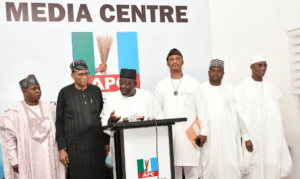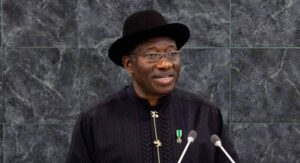GITEX Nigeria 2025: FG Targets 21% GDP from ICT by 2027, Outpacing Oil and Gas

…as Sanwo-Olu Positions Lagos as Africa’s Innovation Hub
Nigeria’s Minister of Communications, Innovation and Digital Economy, Dr. Bosun Tijani, has projected that the country’s ICT sector will contribute 21% to the national GDP by 2027, surpassing oil and gas as the key driver of growth.
Delivering his keynote at the opening of the GITEX Nigeria Tech Expo and Future Economy Conference in Lagos, Tijani said the ICT sector already contributes between 16% and 18% to GDP, making it the fastest-growing contributor to the economy.
“Our digital economy is no longer about apps alone—it is about productivity gains that will transform agriculture, education, manufacturing, and governance,” Tijani stated.
He noted that Nigeria is the largest telecommunications market in Africa, with Lagos standing as the continent’s innovation capital and home to five to six unicorns.
The minister unveiled several federal initiatives, including Project Bridge, a 90,000km fibre backbone that will connect every state and local government; the 3MTT programme, designed to be the world’s largest digital skills initiative; and the forthcoming National Digital Economy and New Governance Bill, a landmark legislation aimed at strengthening trust, security, and accountability in the digital space.
“Lagos is where the idea of Africa collides with the ambition of the future,” Tijani added, stressing that startups, corporates, academics, the diaspora, and global partners must co-create sustainable digital solutions with government providing the enabling infrastructure.
In his welcome address, Lagos State Governor, Babajide Sanwo-Olu, described the state as “the beating heart of Africa’s digital and economic renaissance,” noting that Lagos alone accounts for more than 70% of Nigeria’s tech inflows.
“Between 2019 and 2024, Lagos attracted over $6 billion in foreign tech startup funding,” the governor disclosed. “We are seeing hyper-scale data centres, submarine cables, and fibre connectivity expanding across the city.”
Sanwo-Olu also pointed to Lagos’ integrated transport payment card—designed by young Nigerian engineers—as proof of how homegrown innovation is improving public services. He reaffirmed Lagos’ commitment to supporting startups through the Lagos State Science and Innovation Council (LASIC), which provides grants of up to ₦80 million annually to emerging ventures.
Both leaders emphasized the intersection of technology and creativity, with Lagos’ vibrant Nollywood and Afrobeats industries complementing its booming startup ecosystem.
“The best way to predict the future is to create it,” Sanwo-Olu declared. “Lagos is not just a city today—it is the launchpad for Africa’s tomorrow.”






